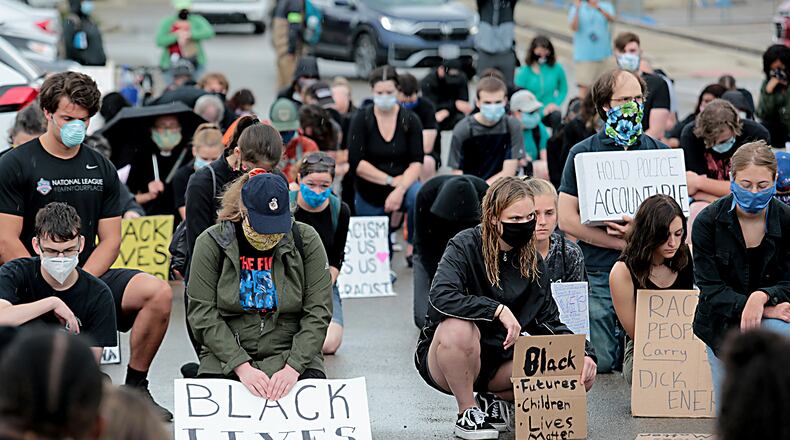My son is 19.
Teenage boys are sometimes given to bombast and hyperbole. So I took a breath and prepared to introduce perhaps a little nuance into the conversation. Before I could gather my thoughts, my son announced to us that George Floyd had been killed by a policeman in Minneapolis.
My son goes to college in Minnesota and word was already filtering out that Derek Chauvin, the cop who kneeled on Floyd’s neck, had a record of complaints against him and not been held publicly accountable for his actions. My son was angry and outraged.
There is a long history of police violence against African Americans. In his 1963 “I Have a Dream Speech,” Rev. Martin Luther King Jr. called for an end to the “unspeakable horrors of police brutality,” and No. 7 in the Black Panther’s 1966 platform calls for an end to “police brutality and murder of black people.”
>> Dayton small businesses get $719,000 in cash grants
Yet, just in the past few weeks, we’ve invented a new set of crimes for which black people have been harassed or killed. Jogging while black (Brunswick, Georgia); living in your own apartment while black (Louisville, Kentucky); and bird-watching while black (New York City).
My son pays a great deal of attention to current events. He was seething from police killings of unarmed black men long before Floyd’s death under a police officer’s knee. My son was 13 when Michael Brown was gunned down by police and Ferguson, Missouri, went up in flames. Around that same time, and a few miles from my son’s school, John Crawford was killed by a police officer in at the Beavercreek Walmart. His crime: shopping while black.
Just a few months after that, Tamir Rice was shot to death by a policeman in Cleveland. His crime: playing on a playground while black.
Tamir Rice was 12. My son had just turned 14.
And so it has gone through my son’s teenage-hood. In his junior year, his girlfriend at the time was stopped by Beavercreek police. Her crime: walking her dog on her own street while black. My son is 6’1” with sandy blond hair and blue eyes. As he’ll tell you, he has never been stopped by a cop for anything.
Teenagers, I’ve come to understand, have an urgent sense of justice. At their worst, they view the world through over-simplified lenses. At their best, they see the world with a sharpness and clarity the rest of us too often have lost as we equivocate and try to explain things away.
Credit: Contributed photo
Credit: Contributed photo
What has outraged my son is not only that a 12-year-old child could be shot by police. Just as galling to him is that few seem to be held accountable for these extrajudicial killings. More often than not prosecutors won’t prosecute police and juries won’t convict them.
Complain all you like about “the kids today,” about their sensitivities and fragility, but this is the world they’ve grown up in, the world the rest of us have created for them. And make no mistake, children in no other allegedly civilized country grow up this way. In 2019, the rate of police killings in the U.S. was 28 times higher than in Germany and over 50 times higher than in the United Kingdom. Of course, in Great Britain police are not armed to the teeth with military grade hardware like they are here.
We teach our children that actions have consequences and that justice is fair. But from my son’s point of view that simply isn’t true, not if you’re a police officer shooting unarmed black people. The way he sees it, we are certainly not all equal under the law. His pronouncement before dinner that night reflects a betrayal that he’s been lied to and I am hard pressed to tell him otherwise.
Steven Conn, W.E. Smith Professor of History at Miami University, is a regular contributor .
About the Author

